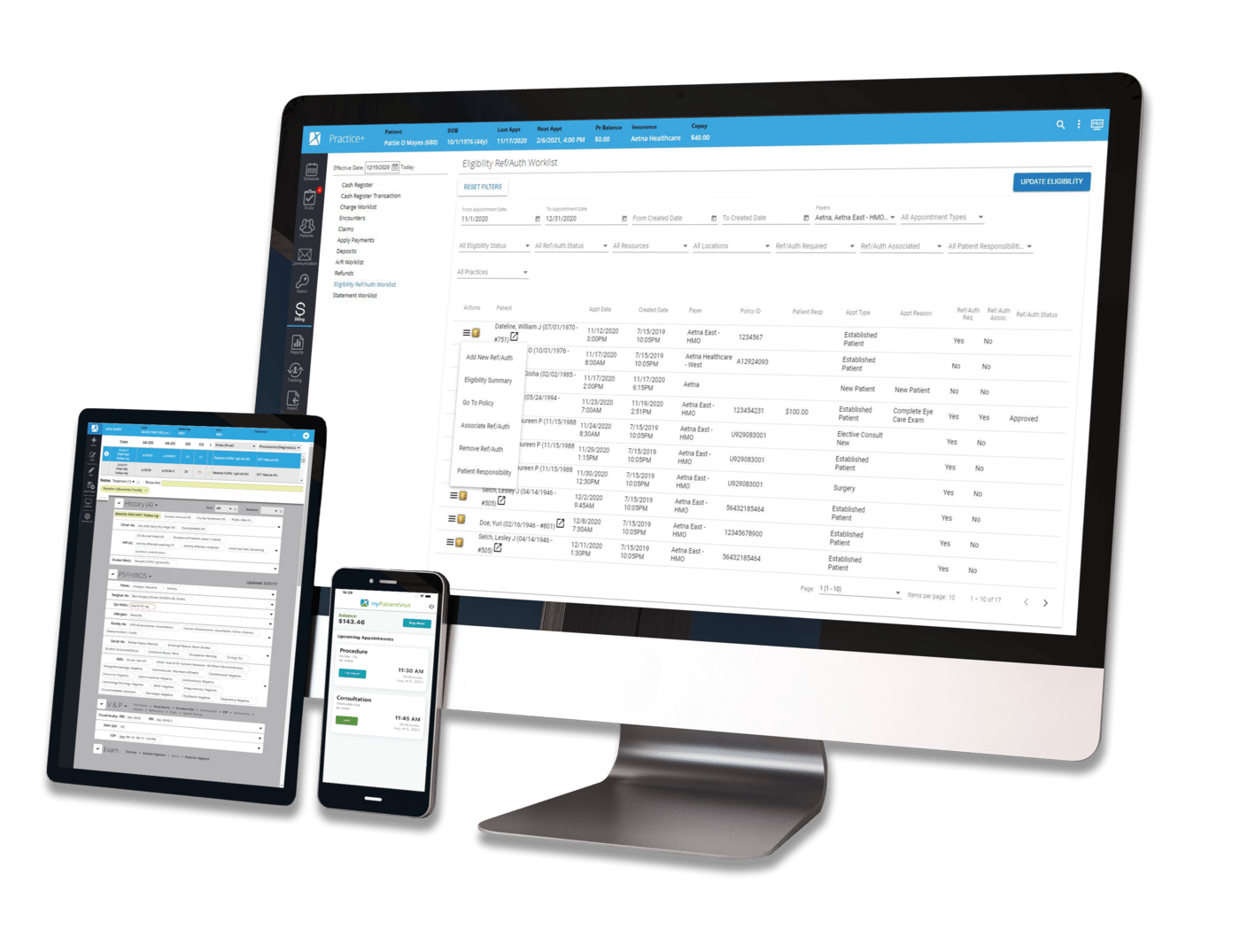Latest Articles
The latest news and information regarding electronic medical records, practice management software, HIPAA, and security from Nextech.

Clinical Efficiency | Healthcare Technology | Front & Back Office Performance
By:
Brian Gennusa
October 17th, 2017
How your EMR & Practice Management Systems Play a Part in Contingency Planning Disaster. Catastrophe. Crisis. Most of us do not like the think about these things, and we often neglect to plan for them until they are upon us. But in the midst of recent events—Hurricanes Harvey, Irma and Maria, wildfires in California and one of the largest earthquakes in Mexico—it is important to recognize that contingency planning is something that should not be overlooked, waiting until a threat is imminent and we must react.

Patient Engagement | Healthcare Technology
By:
Brian Gennusa
September 8th, 2015
A 2014 HIMSS study showed that more than two-thirds of clinicians use smartphones or tablets at their facilities. Mobile devices will only become increasingly common in health care, and if used right, they can improve the way doctors interact with patients.


By:
Brian Gennusa
August 21st, 2015
Within any medical practice, it is necessary to make electronic health records a part of all network systems, including practice management software. By enabling interoperability between different metric-tracking software platforms, office managers let physicians focus on their patients, rather than the process.

Healthcare Technology | Financial Management
By:
Brian Gennusa
August 18th, 2015
How does your medical practice deal with its revenue cycle management? Working with the flow of money into and out of a practice is as important as providing proper care to patients. Without the funds, after all, a practice ceases to function. Thankfully, there are a lot of ways that organizations can improve their relationship with their revenue. Many groups take too long to collect, allow too many write-offs, or use technology that is unoptimized for collections. Some have a very high claim rate denial or fail to follow up on denied claims. Finding out how a given practice can improve its financial situation requires knowing exactly how it is failing to capitalize on available opportunities.

By:
Brian Gennusa
June 25th, 2015
The benefits of implementing an electronic health record (EHR) are obvious for medical practices, enabling a streamlined information throughout the office. It's now possible for healthcare organizations to effectively send information through EHRs when and where they want. And there is no more perfect example of this than the use of mobile technology to get data to medical practitioners on the go. Mobile sharing is gaining popularity in medicine as a way to improve patient care without sacrificing efficiency.

Patient Engagement | Healthcare Technology
By:
Brian Gennusa
April 30th, 2015
With the EHR Incentive program and other initiatives to make health care more engaging, the patient portal is more important than ever. However, as revealed at the 2015 Healthcare Information and Management Systems Society conference, portal technology has largely fallen short when it comes to fostering engagement.

By:
Brian Gennusa
April 29th, 2015
Regardless of the specialty in which you work, having effective practice management techniques will be key to your success in the medical world. Simply put, no matter how strong the care you provide to your patients is, you won't be getting everything you can out of your practice unless your management is as close to perfect as possible. While there will always be some level of inevitable mistakes in this sort of work, it's important to recognize that a continual, ongoing evaluation and adjustment of your practice management techniques can be extremely beneficial to you, your staff and your patients. Take a look at these key tips, suggestions and techniques to help you avoid a practice management epic fail:

By:
Brian Gennusa
April 14th, 2015
In May 2014, there was an extension to the deadline for the ICD-10 transition. Physicians and practices were largely pleased with the delay as it allowed for time to fix major issues with the new coding system as well as an extra year for providers to update their systems and properly train staff. As the new deadline quickly approaches, the health care industry has become worried that the Centers for Medicare and Medicare Services will call for another delay of the big switch. Many are ready for the new system and eager to begin using ICD-10, which has the potential to allow for more specific and accurate coding.